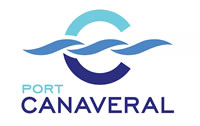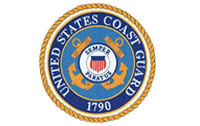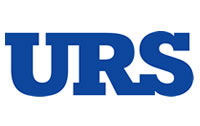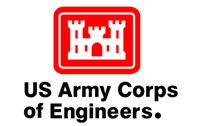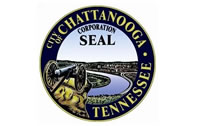A supervisor or manager position is vacant and you need to interview candidates. The reason the position is vacant is that the last person hired for that position was a colossal failure. You had gone through the vetting process as best you knew how. The guy had a great resume, and the references he provided gave blandly stated he was an employee there between the dates you asked about. He was personable, presented himself well during the interview, and had worked in your industry for a number of years.
After hiring him, you spent time telling him about your priorities. You wanted to see specific improvements in performance measures such as the number of work orders completed per person per day, the preventive maintenance tasks needed to have higher completion percentages and all work orders were to be closed out correctly.
After the first few weeks it seemed as though he was going through the normal steps of getting to know the organization and the people he worked for, the people he worked with, and the people who worked for him. There were a few things that cropped up that gave you pause, but it was early and you still believed you had the right guy.
Checking with the new hire to see if he needed assistance or advice he always said, “No thanks. I’ve got it.” During the next couple of months you started asking for status reports on a dozen or so items. He started pushing back, saying there weren’t enough hours in the day. So you got more assertive, giving the guy one or two tasks to focus on and holding him accountable to complete them.
The people who worked for him started leaving clues. The need to fix a man-lift that was important to getting work done safely was acknowledged but never got fixed. Then they pushed on boundaries — such as taking more time than authorized for breaks or lunch — just to see if they could get away with it. A couple of workers started to take days off without notice.
Finally you admit to yourself that this guy is the wrong fit. He’s just not getting it done. The stressful next step was to call the guy in and let him know that he was being let go.
What you put into the interview preparations will be reflected in the quality of the person you hire. Every supervisor or manager position that turns over costs your organization between 25% and 100% of the first year salary, so prepare completely and choose wisely.
Can you improve your chances of hiring the right person for the job? Whether the candidate is an internal promotion or an outsider candidate, you can improve your chances of selecting a strong performer. Spend time defining what a good person in that job would be doing. A short list of common situations that you want this person to be able to handle might include:
- addressing an underperforming individual
- taking actions to improve work group performance
- management skills, such as status reports, analysis, budgeting.
Develop scenarios and information before the interview for each critical element. Prepare for the interview by devising tests in these critical activities. For instance, to assess how the candidate would deal with underperforming individuals, provide them with the disciplinary policy, employee assistance program (EAP) policy, and the collective bargaining agreement. If your organization views these as confidential, then develop a set of similar policies to give the candidate a set of similar policies or agreements. Create a descriptive scenario where an employee had been a strong performer in the past but has had several months of declining performance culminating in the employee not showing up to work. Bring in someone to play the part of the employee and ask the candidate to handle the situation as though he were the employee’s supervisor.
You’re not looking for perfect understanding of the policies; you’re looking for the thought process and ability to address key job expectations. If the person hesitates or hadn’t prepared by reading the background information, you have a strong indication of future performance. If the candidate handles it well, the candidate will likely be strong in this aspect. Develop similar scenarios for the other critical aspects.
Lawyers have made reference checking difficult; legal advice is to provide neutral ratings on past employees to avoid potential litigation. Therefore to get the right person you need to do some work. People put their best foot forward in the interview; make the candidate show you the job can be done.
 Tom Moriarty, P.E., CMRP is president of Alidade MER. He is a former Coast Guardsman, having served for 24 years; an enlisted Machinery Technician for nine years; earned a commission through Officer Candidate School; and retired as a Lt. Commander. During his final year of service, 2003, Tom was selected as the U.S. Coast Guard’s Federal Engineer of the Year; an award sponsored by the National Society of Professional Engineers (NSPE). He is a member of the Society of Maintenance and Reliability professionals, the past Chair of the American Society of Mechanical Engineers (ASME), Canaveral Florida Section, and a member of the ASME Plant Engineering and Maintenance (PEM) Division. He has a B.S. in Mechanical Engineering from Western New England College, and an MBA from Florida Institute of Technology; Professional Engineer (PE) licensed in Florida and Virginia, Certified Maintenance and Reliability Professional, various credentials in management and reliability fields. He can be reached at [email protected]. Tom Moriarty, P.E., CMRP is president of Alidade MER. He is a former Coast Guardsman, having served for 24 years; an enlisted Machinery Technician for nine years; earned a commission through Officer Candidate School; and retired as a Lt. Commander. During his final year of service, 2003, Tom was selected as the U.S. Coast Guard’s Federal Engineer of the Year; an award sponsored by the National Society of Professional Engineers (NSPE). He is a member of the Society of Maintenance and Reliability professionals, the past Chair of the American Society of Mechanical Engineers (ASME), Canaveral Florida Section, and a member of the ASME Plant Engineering and Maintenance (PEM) Division. He has a B.S. in Mechanical Engineering from Western New England College, and an MBA from Florida Institute of Technology; Professional Engineer (PE) licensed in Florida and Virginia, Certified Maintenance and Reliability Professional, various credentials in management and reliability fields. He can be reached at [email protected].
|
|
| Subscribe to the Human Capital RSS feed | |


